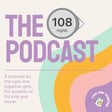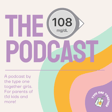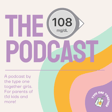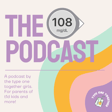
Episode 68 - Tate talks MDI, burnout, puberty years and everything between!
Tate has been living with T1D for 15 years and shares the highs and the lows! She doesn't hold back with speaking the reality of T1D life while also sharing how she balances it all.
Raquel is currently in a contracted agreement with Tandem Diabetes.
Instagram: https://www.instagram.com/typeonetogether/
Tiktok: https://www.tiktok.com/@typeonetogether
Amazon Storefront: https://www.amazon.com/shop/typeonetogether
Website: www.typeonetogether.com
T1D Diagnosis: Made Simple (The Course): https://typeonetogether.thinkific.com/courses/t1ddiagnosismadesimple
T1D Babysitter List: https://stan.store/typeonetogether/p/t1d-babysitter-resource
Team Together: https://www.typeonetogether.com/teamtogether
Super Parents Community: https://honeyhealth.app.link/28gQmJjyDsG
Facebook Group: https://www.facebook.com/groups/typeonetog




